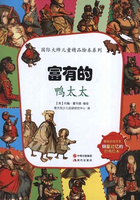The power of the generals most strikingly appeared in their control of the state governments which were continued as provisional organizations.Since no elections were permitted, all appointments and removals were made from military headquarters, which soon became political beehives, centers of wirepulling and agencies for the distribution of spoils.At the outset civil officers were ordered to retain their offices during good behavior, subject to military control.But no local official was permitted to use his influence ever so slightly against reconstruction.Since most of them did not favor the policy of Congress, thousands were removed as "obstacles to reconstruction."The Governors of Georgia, Louisiana, Virginia, Mississippi, and Texas were displaced and others appointed in their stead.All kinds of subordinate offices rapidly became vacant.New appointments were nearly always carpetbaggers and native radicals who could take the "ironclad" oath.The generals complained that there were not enough competent native "loyalists" to fill the offices, and frequently an army officer was installed as governor, treasurer, secretary of state, auditor, or mayor.In nearly all towns, the police force was reorganized, and former Federal soldiers were added to the force, while the regular troops were used for general police purposes and for rural constabulary.
Over the administration of justice the military authorities exercised a close supervision.Instructions were sent out to court officers covering the selection of juries, the suspension of certain laws, and the rules of evidence and procedure.Courts were often closed, court decrees set aside or modified, prisoners released, and many cases reserved for trial by military commission.
Some commanders required juries to admit Negro members and insisted that all jurors take the "ironclad" test oath.There was some attempt at regulating the Federal courts but without much success.
Since the state legislatures were forbidden to meet, much legislation was enacted through military orders.Stay laws were enacted, the color line was abolished, new criminal regulations were promulgated, and the police power was invoked in some instances to justify sweeping measures, such as the prohibition of whisky manufacture in North Carolina and South Carolina.The military governors levied, increased, or decreased taxes and made appropriations which the state treasurers were forced to pay, but they restrained the radical conventions, all of which wished to spend much money.
According to the Act of March 23, 1867, the generals and their appointees were to be paid by the United States, but in practice the running expenses of reconstruction were paid by the state treasurers.
Any attempt to favor the Confederate soldiers was frowned upon.Laws providing wooden legs and free education for crippled Confederates were suspended.
Militia organizations and military schools were forbidden.No uniform might be worn, no parades were permitted, no memorial and historical societies were to be organized, and no meeting of any kind could be held without a permit.The attempt to control the press resulted in what one general called "a horrible uproar." Editors were forbidden to express themselves too strongly against reconstruction; public advertising and printing were awarded only to those papers actively supporting reconstruction.Several newspapers were suppressed, a notable example being the "Tuscaloosa Independent Monitor", whose editor, Ryland Randolph, was a picturesque figure in Alabama journalism and a leader in the Ku Klux Klan.
The military administration was thorough and, as a whole, honest and efficient.With fewer than ten thousand soldiers, the generals maintained order and carried on the reconstruction of the South.The whites made no attempt at resistance, though they were irritated by military rule and resented the loss of self-government.But most Southerners preferred the rule of the army to the alternative reign of the carpetbagger, scalawag, and Negro.
The extreme radicals at the North, on the other hand, were disgusted at the conservative policy of the generals.The apathy of the whites at the beginning of the military reconstruction excited surprise on all sides.Not only was there no violent opposition, but for a few weeks there was no opposition at all.The civil officials were openly unsympathetic, and the newspapers voiced dissent not untouched with disgust; others simply could not take the situation seriously because it seemed so absurd; many leaders were indifferent, while others among them, Generals Lee, Beauregard, and Longstreet, and Governor Patton--without approving the policy, advised the whites to cooperate with the military authorities and save all they could out of the situation.General Beauregard, for instance, wrote in 1867: "If the suffrage of the Negro is properly handled and directed, we shall defeat our adversaries with their own weapons.The Negro is Southern born.With education and property qualifications he can be made to take an interest in the affairs of the South and in its prosperity.He will side with the whites."Northern observers who were friendly to the South or who disapproved of this radical reconstruction saw the danger more clearly than the Southerners themselves, who seemed not to appreciate the full implication of the situation.In this connection the New York "Herald" remarked:















